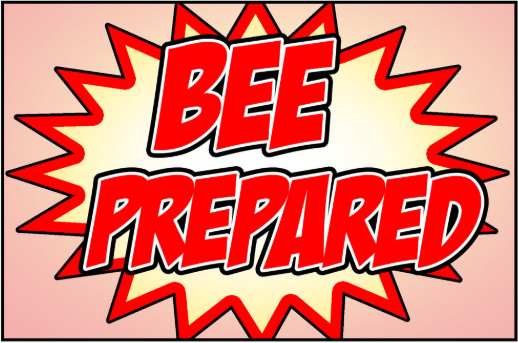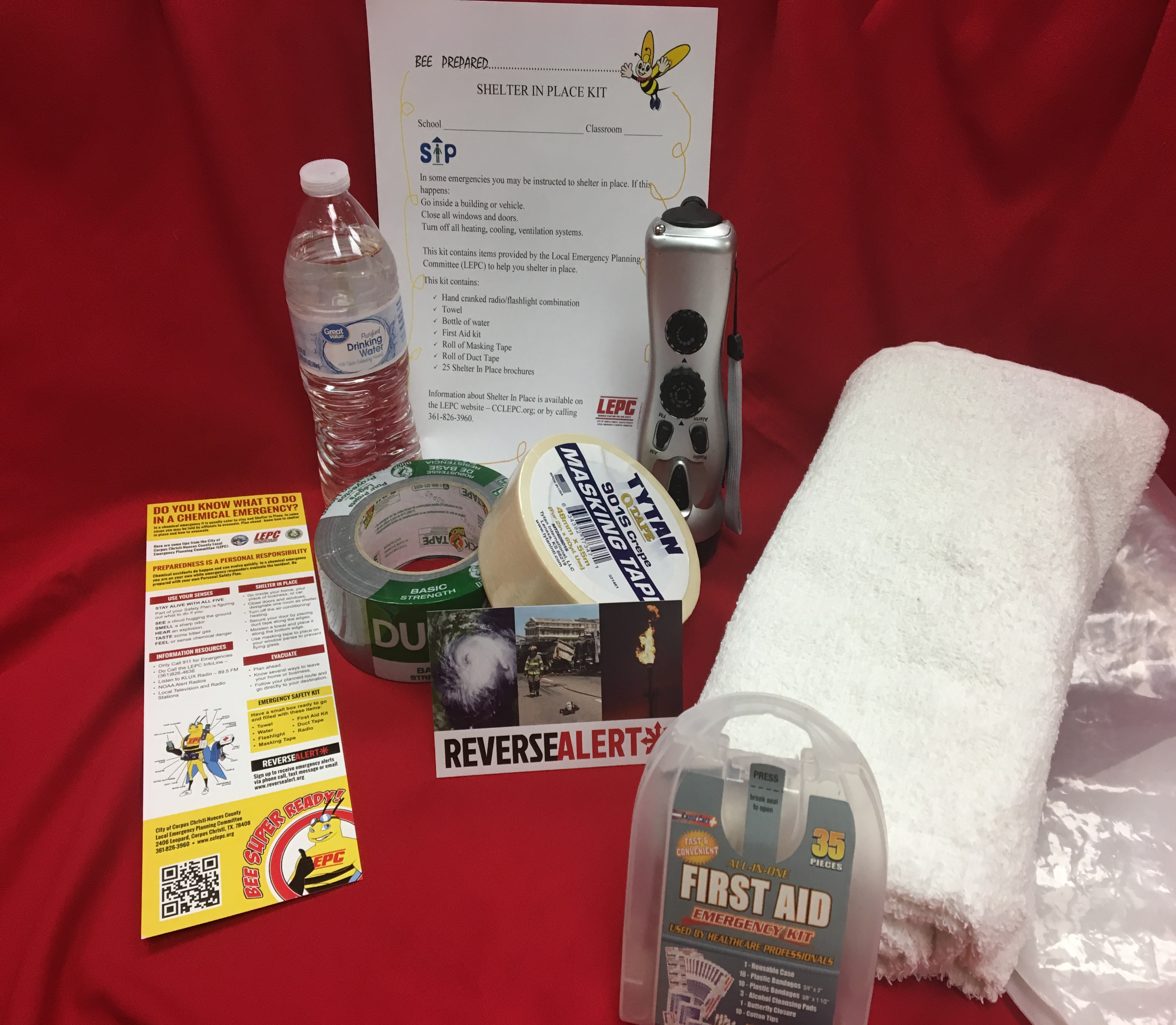
Super Ready Bee is not just ready. He's SUPER READY! Because he knows in the event of a chemical emergency, it's best to


SHELTER-IN-PLACE
An emergency can happen anywhere and at any time! Whether it is a natural disaster emergency or a chemical hazard, you need a plan to protect you and your family. In some emergencies, you may be instructed by local authorities to shelter-in-place.
IF THIS HAPPENS:
- Go inside a building or vehicle. Shelter in a room with as few doors and windows as possible. Try to shelter in an area with access to water and restrooms.
- Close and lock all doors and windows. Close as many internal doors as possible.
- Turn off all heating, cooling and ventilation systems.
- Close fireplace dampers and turn off exhaust fans.
- Seal any gaps or cracks around doors and windows that might allow air to come in. Seal doors and windows with duct tape and place tape across windows to avoid flying glass if an explosion occurs. Close drapes and blinds.
- Place damp towels or any materials at base of doors and windows to prevent airflow.
- Turn your TV on to local stations for update. Turn your radio to KLUX 89.5 FM for emergency information. Dial (361) 826-4636 for recorded, local information. DO NOT call 911 unless you have an emergency.
- Do not evacuate or travel unless instructed to do so by local authorities.
- Do not go to your children’s school or family member’s workplace to pick them up.
- Develop your own emergency plan for business and/or home so that everyone is familiar with it. Practice it regularly.

PREPARE
Develop your own family (or business) emergency plan so everyone knows what to do. Involve everyone in the plan and give specific duties to each person. Practice the plan regularly!
Assemble a disaster supply kit that includes emergency water and food. The shelter kit should be checked on a regular basis. Check batteries for radios and flashlights. Make sure all your supplies are present.
YOUR KIT SHOULD INCLUDE:
- Towel
- First aid kit
- Plastic trash bags
- Local or area maps
- Non-perishable snacks
- Small container of water
- Duct tape and masking tape
- Flashlight
- Small radio
- Eyeglasses, hearing aid (and batteries), prescription drugs
- Emergency contact information, phone numbers

EVACUATE
When an emergency occurs, local authorities may call for residents to evacuate. When ordered to evacuate, it is important to remember:
- Follow your family (or business) emergency plan. Know how to communicate with family members or co-workers. Have a phone contact list.
- Know where to get information about the emergency – ReverseAlert Notification System, KLUX 89.5 FM radio, Information Line (361-826-4636) and local television stations.
- Take your emergency supply kit with you.
- Keep a road map in your emergency supply kit.
- Know where you are going and go immediately to that location.
- Know an alternate route to your destination in case your primary route is blocked or unavailable.
